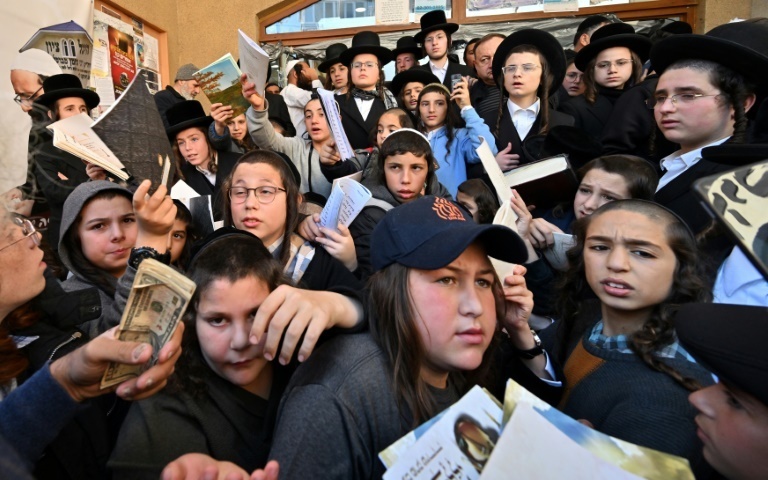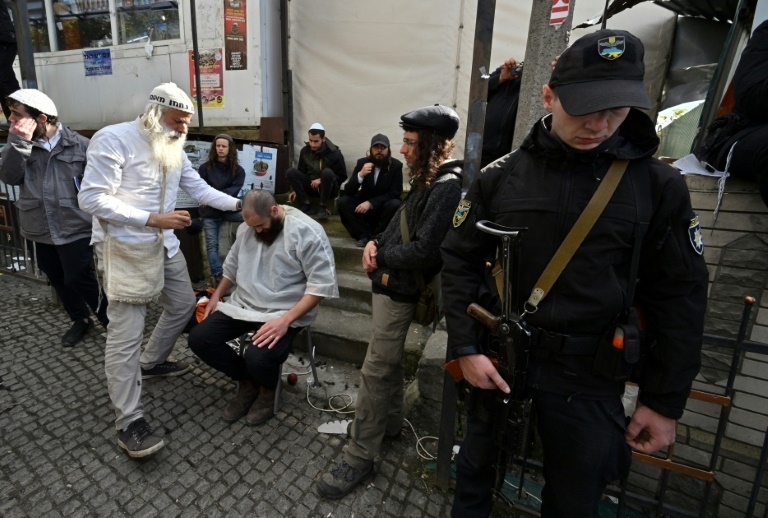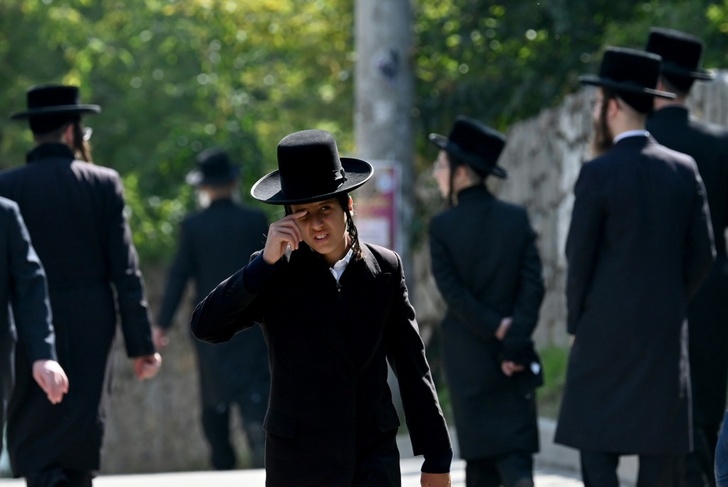Tens of thousands of Hasidic Jews gathered in the Ukrainian city of Uman for their annual pilgrimage, officials said Sunday, despite authorities asking them to skip the trip because of the war.
Every year, Hasidic Jewish pilgrims come to Uman in central Ukraine from across the world to visit the tomb of one of the main figures of Hasidic Judaism for the Jewish new year celebration of Rosh Hashanah.
"This is the most important day of the year to be able to connect with God. And this a great place to do it," one pilgrim, Aaron Allen, told AFP.
Uman is relatively far from the frontline, but Ukrainian and Israeli authorities still urged worshippers to skip the celebrations taking place between September 25 and 27 this year.
Despite the warnings, crowds of Hasidim dressed in traditional black clothing gathered in Uman, celebrating in the streets.

Pilgrims often cite a religious text from Rabbi Nachman, the founder of an ultra-Orthodox movement who died in the city in 1810, in which he promised he would "save (worshippers) from hell" if they came to visit his tomb on Rosh Hashanah.
Police set up a wide perimeter to access the area around the grave, checking IDs and only letting through residents and Hasidim.
The sale of alcohol, fireworks and toy guns is forbidden during the festivities in Uman, regional police spokeswoman Zoya Vovk told AFP. A curfew between 11:00 pm and 5:00 am is also in place.
- Buzzing celebrations -
In his daily address to the nation on Sunday, Ukrainian President Volodymyr Zelensky said he wanted to "congratulate the Ukrainian Jewish community and all Jews around the world on the occasion of Rosh Hashanah."
"May all prayers for victory, all prayers for peace in Ukraine be heard", he added.
And despite the restrictions, the shrine housing the tomb was buzzing with celebrations on Sunday.
Pilgrims -- only men and boys -- were praying, pressed against the white walls and columns of the burial place.
Outside, a simultaneous prayer from hundreds of pilgrims resonated.
Metres away from the temple, shouting over a multi-voiced prayer, pilgrim Yaniv Vakhnin explained how Rabbi Nachman could provide solace at the most challenging of times.
"Rabbi Nachman says that even (when) there is war in a country whoever listens to him will not be affected", the 48-year-old from Safed in northern Israel said.

Vakhnin said it took him 30 hours to get to Uman: first a flight to neighbouring Romania and then a 15-hour bus journey.
He came to Ukraine as a confirmation of the steadfastness of his faith with two of his children, while five more remained at home.
"We are going to pray to God. And hopefully Ukraine will not be hurt and will win the war, because Rabbi Nachman is buried here, so Ukraine is protected," Vakhnin said.
The United Jewish Community of Ukraine organisation said that more than 23,000 pilgrims had arrived in Uman.
Police will not reveal exactly how many pilgrims have attended until the end of the festivities for fear of attacks from Russia.
"We understand that there is a full-scale Russian invasion of Ukraine and that the enemy is monitoring information," police spokeswoman Vovk told AFP.
"The only thing I can say is tens of thousands (of pilgrims have already arrived)".
In September 2020, thousands of ultra-Orthodox Jews were trapped for days between the borders of Belarus and Ukraine after Kyiv refused to allow them entry due to the Covid pandemic.
Uman was hit by Russian missiles in the early weeks of the war, and last month a civilian was killed by a Russian missile in the district.
dg/pmu/lcm
© Agence France-Presse
Your content is great. However, if any of the content contained herein violates any rights of yours, including those of copyright, please contact us immediately by e-mail at media[@]kissrpr.com.
Source: Story.KISSPR.com

